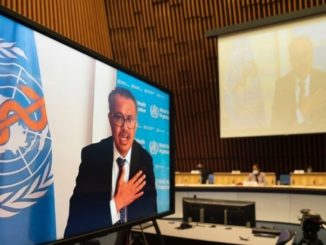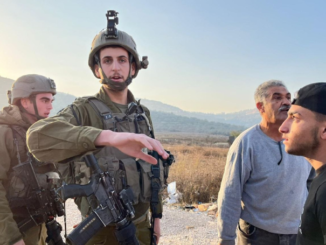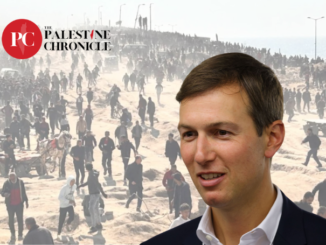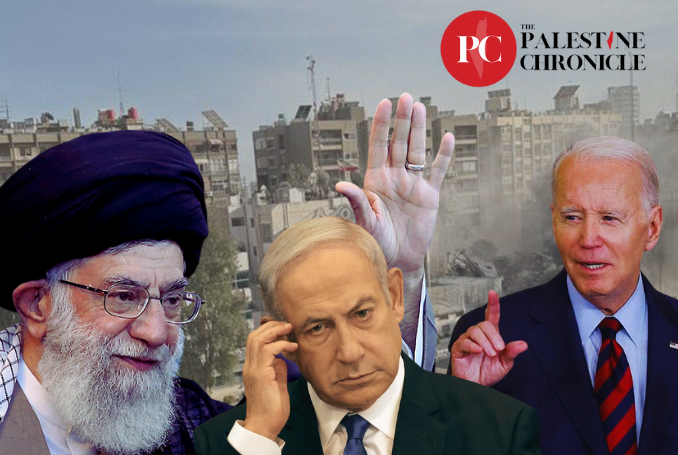
By Ilan Pappe – The Palestine Chronicle 
The only regional power that constantly and unconditionally supported the Palestinian cause is Iran.
Ever since the death of Egyptian President Gamal Abdul Nasser, none of the regional powers in the Middle East had shown genuine solidarity with the Palestinian liberation movement.
Jordan severed its ties with the Palestine Liberation Organization (PLO) in 1970; Lebanon ceased to be the geographical hinterland for the movement in 1982; Syria, which probably was more loyal than other states, did not allow Palestinian independent strategy and visions while Egypt altogether ceased to play a prominent role in regional politics.
Other Arab countries were also quite absent from the Palestinian struggle.
Türkiye, under Erdogan, at times showed greater solidarity, in particular with the besieged Gaza since 2005, but also pursued an ambivalent policy due to its strategic relationship with Israel.
The only regional power that constantly and unconditionally supported the Palestinian cause was Iran.
Erroneous Equation
The Western narrative equates erroneously, and probably intentionally, Iran with the Islamic State (ISIS), that very same organization that, in actuality, planted bombs in Iran, killing many people.
It should also be remembered that the Western support of Sunni Jihadism as a counterforce to the secular and left anti-colonial movement planted the seeds from which both Al-Qaeda and ISIS grew and prospered.
Their violence was also directed against Shia groups in Southeast Asia and the Arab world. Many of these groups are directly linked to Iran.
Contrary to Western propaganda, the Iranian support to mainly Shia resistance groups is part of its perception of self-defense and not derived from a wish to impose a kind of Jihadist regime all over the world.
De-Zionized Palestine
Since the fall of the Soviet Union, over 30 years ago, Israel is the only state in the region that enjoyed unconditional support from an external superpower and its allies.
And it is important, even at the risk of sounding trite, to mention once more what this unconditional support is for.
Under this US-championed international immunity, Israel stretched over the whole of historical Palestine, ethnically cleansed more than half of its population over the years, and subjected the other half to a regime of apartheid, colonization and oppression.
Thus, direct support for the Palestinian cause from an important regional power such as Iran is meant to counteract the existential danger faced by the Palestinian people in the last 75 years.
Iran is a complicated ally. It still has some way to go in terms of its own human rights record.
The vocabulary and reservoir of images used by Iranian leaders and, at times, media does a disservice to the truly genuine Iranian solidarity.
Slogans such as “Small Satan” or “Death to Israel”, along with promises of total destruction, are all unnecessary tropes for galvanizing a nation that is already galvanized. Indeed, during the dictatorship of the Shah, the Iranian people supported Palestine and resented their regime for its close ties with Israel.
Aside from rhetoric, however, the policy itself is highly valuable in terms of redressing the imbalance of power between apartheid Israel and the occupied Palestinians, who, again, are facing an existential threat.
It should also be noted that the language Israeli propaganda uses in referring to Iran, the Palestinians or Hamas is far worse – as was revealed in full in the material the government of South Africa handed over to the International Court of Justice last December.
In this respect, many of us share Iran’s vision of a de-Zionized and decolonized one-state solution in historical Palestine, which, at least I hope, will also be a democratic welfare state.
Iran’s policies towards Israel are portrayed in the West as motivated by antisemitism of the worst kind.
Due to Israel’s intrinsic resentment of any pro-Palestine sentiments, in the Middle East or anywhere else in the world, Iran’s strong position in support of the Palestinians makes it the main target for Israel and its allies. In order for Israel to maintain Western-led pressure on Iran, it often, if not always, rewrites the history, the very chronology of the events, thus always presenting Iran as an aggressor and Israel as a country in a permanent state of self-defense.
Israel’s Aggressions and Iranian Counterattack
For a long time, Iran has tolerated sabotage acts on Iranian soil, including the assassination of scientists, the killing and wounding of its personnel in Syria and the Israeli pressure on the US to abolish the Iran nuclear deal in 2015.
Imagine if Iran would have destroyed an American embassy, killing some of the most senior officers of the US army, one would only imagine what the American reaction would have been.
In their last attack on Israel, on April 13, Iran did everything in its power to show that it is not seeking collateral damage or wishing to target civilians. In fact, they gave Israelis more than ten days to get ready for the strike.
Yet, Israel and the West were very quick to declare that the Iranian attack was an utter failure that caused no damage at all. A few days later, however, they had to admit that two Israeli air bases were, indeed, directly hit in the Iranian strike.
But this is hardly the point. Of course, both sides have the capability to inflict great damage and loss of life on each other. This balance of power, however, has implications that are far more important than the ones analyzed by military experts.
A Counterweight
If the Hamas operation on October 7 cast doubt on the invincibility of the Israeli army, the technological know-how Iran has introduced is another indicator that Israel is not the only military superpower in the region.
It should also be noted that Israel needed direct support from Britain, France, the US, Jordan and some other Arab countries to protect itself from the Iranian attack.
So far, there is no sign Israelis internalized the important lessons they should have learned in the last seven months: about the limitations of power, the inability to exist as an alien state in the midst of the Arab and Muslim world, and the impossibility to permanently maintain a regime of racial apartheid and military oppression.
In this respect, the technological capacities of a powerful regional power such as Iran, by itself, is not a game changer. But it does constitute a counterweight to a strong and wide coalition that has always supported the Zionist project since the very beginning. A counterweight that was not there for many years.
It is obvious that the situation in historical Palestine will not change through the development or transformation of one single factor. Indeed, change will occur as a result of many factors. The combination of these processes will eventually merge into a transformative event, or a series of events, which will result in a new political reality that is situated within decolonization, equality and restorative justice in historical Palestine.
This matrix requires a strong Iranian presence, which can even be more effective if coupled with reforms inside Iran itself. It also requires the global south to prioritize Palestine; a similar change should also be registered in the global north.
A united and younger Palestine liberation movement, alongside the de-Zionization of the global Jewish communities, are also two important factors.
The social implosion inside Israel, the economic crisis and the inability of the government and the army to address the current needs, are also crucial developments.
When fused, all of these factors will create a powerful transformation on the ground, which will lead to the creation of a new regime and a new political outfit.
It is too early to give the new outfit a name and it is premature to predict the outcome of the liberation process.
However, what is quite visible is the need to help this new reality to unfold as soon as possible. Without it, the genocide in Gaza would not be the last horrific chapter in Palestine’s history.
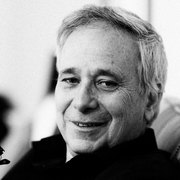
– Ilan Pappé is a professor at the University of Exeter. He was formerly a senior lecturer in political science at the University of Haifa. He is the author of The Ethnic Cleansing of Palestine, The Modern Middle East, A History of Modern Palestine: One Land, Two Peoples, and Ten Myths about Israel. He is the co-editor, with Ramzy Baroud of ‘Our Vision for Liberation.’ Pappé is described as one of Israel’s ‘New Historians’ who, since the release of pertinent British and Israeli government documents in the early 1980s, have been rewriting the history of Israel’s creation in 1948. He contributed this article to The Palestine Chronicle.

